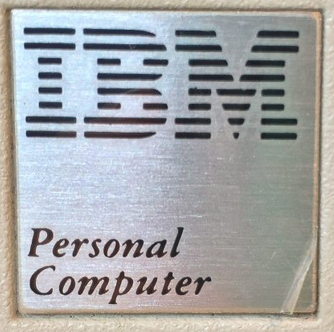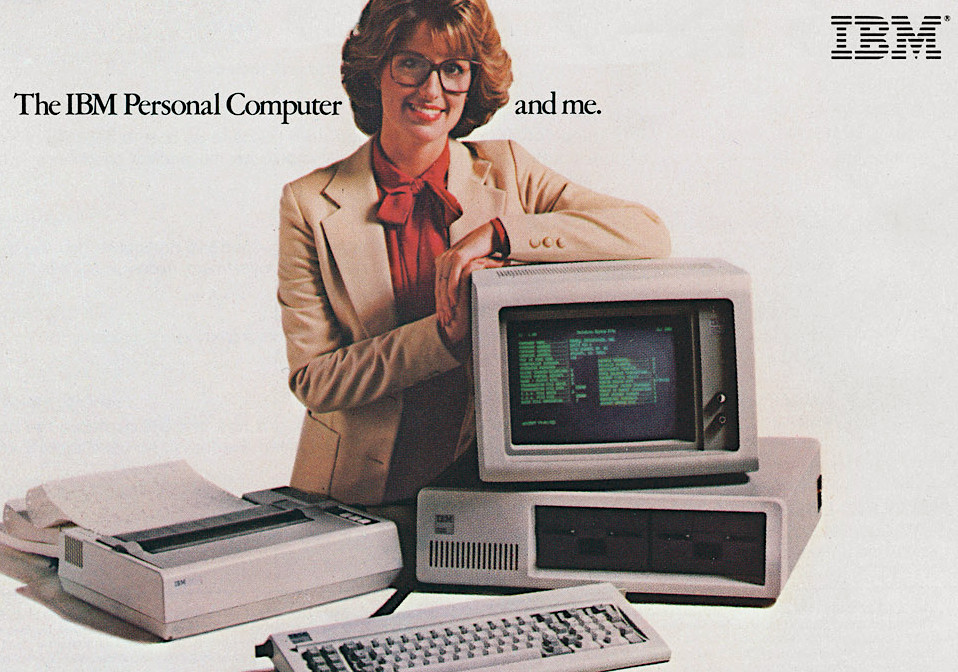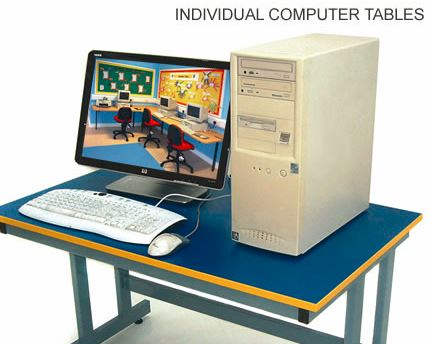Japanese people call computers PC in Japanese-made katakana expression. English speakers usually use laptops for that. Is PC used to mean a computer in English-speaking countries?
-
6From the title, I thought you meant the other PC.– ilkkachuCommented May 6, 2021 at 10:29
-
19PC is English.– BoannCommented May 6, 2021 at 14:51
-
Note that Japanese people actually say "PersoCom", the "4-characters shortening" of "PC" :)– Andrew T.Commented May 7, 2021 at 9:48
-
@Boann So is "Handy", which is used in Germany for (BrE) mobile / (AmE) cell phones. The origin of a word is no guarantee of its continued use in that country.– IMSoPCommented May 10, 2021 at 12:25
5 Answers
Yes.
"PC", standing for "Personal Computer" (pluralized "PCs" when abbreviated), is a valid English phrase, and does refer to both desktop and laptop computers. Indeed, the term originated in English, though if you want specifics as to how the term originated, perhaps you should ask the Retro Computing SE site.
For historical reasons, computers made by Apple are typically not referred to as PCs. They're Macs.
-
48This historical reason is that in 1981 IBM produced a computer called the IBM Personal Computer. The name was abbreviated "IBM PC". Other companies made compatible computers which they described as "IBM PC compatible". This got shortened to "PC Compatible" and then to just "PC's".– David42Commented May 6, 2021 at 1:06
-
28And to add to @David's answer, Apple Macintosh computers were not "IBM PC Compatible." Commented May 6, 2021 at 1:19
-
28Even though in principle a PC can be a laptop, in practice many people use the term "PC" to refer mainly or solely to desktops. It's not common to hear the phrase "laptop PC". And if someone has a laptop, it's much more common for them to refer to it as their laptop than as their PC, even if they don't have any other PCs. Many people also say things like "Should I take a PC or laptop for uni? Laptops are more portable but then a PC is more powerful" ( thestudentroom.co.uk/showthread.php?t=1970790 ). That may not please pedants or IT experts, I agree.– rjpondCommented May 6, 2021 at 10:03
-
13@rjpond I am an IT guy and consider all computers "PC's" but I need to be constantly aware that the majority of my customers tend to distinguish between laptop and PC (for desktops and towers). Not keeping that in mind can lead to a great deal of confusion.– TonnyCommented May 6, 2021 at 10:56
-
12Context is used to disambiguate "PC". If you're in a context where the Mac/Windows distinction is relevant, PC means Windows PC. If you're in a context where portability is important, it means desktop rather than laptop. But in more general contexts, it means anything that isn't a mainframe (or minicomputer -- does anyone still use that term any more?).– BarmarCommented May 6, 2021 at 14:30
Yes, PC is commonly used in English to mean a computer (one PC, two PCs), but different speakers use it to mean slightly different categories of computer.
The term originally stood for "Personal Computer", but became specifically associated with a computer called "PC" released by IBM in 1981.
- The IBM PC was followed by a number of official successors and unofficial "clones" designed to be compatible. These came to be referred to as "PCs", in contrast to other makes of computer, particularly the Apple Macintosh.
- MS-DOS, and then Microsoft Windows, was the dominant operating system on these "IBM-compatible PCs". Some people would consider "PC" to imply a computer running Microsoft Windows, as opposed to the same hardware running Linux.
- The original PC was for a single user, and mostly for office/business use. A multi-user server is not called a "PC", and a games console is not called a "PC", even if the hardware is basically identical. The term "gaming PC" is used, and is distinct from something specifically designed as a "games console".
- Similarly, the early "PCs" were all desktop computers, so some people will use "PC" to mean a desktop rather than a laptop.
In my experience, PC is usually used when trying to make one of these distinctions, e.g. "should I buy a PC or a Mac?", "the software is available for PC and Linux", "the game is better suited to a PC than a console", "are you using a PC or a laptop?"
The word "computer" can refer to the broader category of all desktop and laptop computers, e.g. "log onto our website on your phone, tablet, or computer".
-
4"some people will use "PC" only for a computer running Microsoft Windows." I've heard the term "Linux PC" before. Commented May 6, 2021 at 22:52
-
5@nick012000: But others of us have numerous PCs (4 on/under my desk at the moment), all of which run Linux.– jamesqfCommented May 7, 2021 at 0:35
-
@nick012000 That's why I said "some people" not "it is universally agreed". A search for "PC or Linux" gives plenty of hits clearly using it in the sense of "computer running Microsoft Windows".– IMSoPCommented May 7, 2021 at 8:03
-
"The term originally stood for "Personal Computer", but specifically became popular when IBM released a computer called the "PC" in 1981." There is no evidence of that. Commented May 7, 2021 at 22:41
-
In fact, "personal computer", shortened to "PC", was used for all non-shared computers when those first appeared, and most (if not all) manufacturers used that term to describe their systems, to set them apart from the time-share machines popular at the time. IBM PC became very popular, and caused PC to become synonymous with a particular hardware configuration in popular parlance, but you shouldn't think that the term became popular because of that, it already was. Commented May 7, 2021 at 22:46
The Personal Computer (IBM 5150), or PC, was a computer model from IBM first sold in 1981. It was followed in 1984 by the Portable Personal Computer (IBM 5155). The North American company IBM Corp. had been the leading actor in enterprise and administration computing hardware and software for decades up to the '80s, precisely and ironically until the PC revolution whose advent they largely accelerated.

IBM PC label. Source
Large, expensive and delicate computers of this time were generally rented, not sold, and put in the hands of highly qualified technicians, still in 1980. This had been a very profitable business for decades, the golden times. So the release of affordable computers for small businesses and wealthy individuals was quite a big event. It created the whole new era we know. You can read about the story here.

The first Portable Personal Computer for less than $1,600, 1982. Source
It was made possible by the mass production of highly integrated circuits, collectively known as microprocessors, and specifically CPUs, for central processing units, microprocessor flavors optimized to execute programmed operations.
Around the world small computers are called by different names, referring to some of their aspects which directly derive from this story:
Individual computer is probably the most correct name, as a personal computer is a computer designed to be used by a single person at once (it is not a time-sharing computer used by enterprises, now split into two separate categories: Mainframes and servers).

Ad for individual computer tables. SourcePC and PC clone (not used anymore) have been a kind of super-family for all individual computers designed from IBM specifications used to build PC, PC-XT and PC-AT models. PC specifications were later updated by PS/2 specifications, the ones by which the latest IBM personal computer was designed, but PC-compatible was kept for marketing continuity.
For years, 80 or 90% of the units sold were PC-compatible units. The remaining 10 or 20% were mostly Osborne, Apple and a myriad of other proprietary systems. The small companies disappeared, and Apple was close to the same fate. So PC have been the dominant design for years and the phrase lost its initial meaning, it now tends to be synonymous for individual computer.
Apple systems, IIe, Macintosh, vibrant iMacs, PowerBook or MacBook for the main ones, have their own names (e.g. a Mac) even though Apple has progressively adopted many of the PC specifications, including x86 CPUs, the largest design difference until then. For this reason, it's not unusual now to refer to personal computers of any sort as PCs with different OSes. This is the same as for smartphones, which are managed either by iOS or by Android: there is no big differences between all these devices.

Ad for a game which works on all PCs, regardless of the OS. Source
(Contrary to a widespread legend, MacOS isn't in any way original. Steve Jobs, fired by its board in 1985, in need of an OS for his new company (NeXT) reused Unix, a product created by telephone companies AT&T and Bell, under the name of OSX. In 1997 Apple, close to bankruptcy, recall Jobs and OSX becomes MacOS with the success we know.)In the country I live in, the first individual computers were sold early: Micral, like micro- sold in 1973, Portal, like portable, first laptop in 1980. Because the names were kind of set prior to IBM PC and Apple products' existence, we largely use the neutral word microcomputer (microordinateur), often shortened into micro. This refers to the microprocessing unit the device is based on, and this truly distinguishes them from mainframes, the industry computers. Less often one can say PC or Mac.
With the arrival of laptops, the naming conventions have been even more blurred. While laptop is the Anglo-Saxon name invented by Compaq, the leading manufacturer of laptops when they were introduced, most people in France call them portable computers ("ordinateurs portables") or just *portables" or still microcomputers. "PCs" is most often used in the office context, just like many other words from Anglo-Saxon business language (manager, B2B, subcontractor, telco, open space, ...).
-
2
-
1Should probably note that the very newest Macs are no longer PCs (they use ARM CPUs rather than x86).– VikkiCommented May 9, 2021 at 0:59
-
1This feels like an interesting answer to a different question. The suggestion of "individual computer" seems to be based on logic rather than actual usage; the example shown is probably "an individual table for a computer" rather than "a table for an individual computer". Since this site is for people learning English, the terms used in France aren't really relevant either.– IMSoPCommented May 9, 2021 at 8:11
-
@IMSoP: I don't challenge the fact PC is the Anglo-Saxon wording for desktops (shared with workstation), I explain why. Individual computer, in Europe, means any "personal computer" and "micro" is a very common replacement. There was once magazines with names like L'ordinateur individuel, SVM micro or Micro hebdo. These titles reflect well how people here talk about computers.– minsCommented May 9, 2021 at 8:37
-
11) PC is not "Anglo-Saxon"; the language is called English, and it's the topic of this site. 2) The wiki page you linked to is about a German company with that name, and provides no evidence for it being a common term. 3) What people call it in French is interesting, but not useful to English Language Learners, which is the name of this site.– IMSoPCommented May 9, 2021 at 9:03
Yes. It's a genericisation of a particular class of computer, based on the IBM PC which initially defined it.
I've never seen any suggestion that it was defined by running any particular operating system, but I think that it would be unusual to apply it to a desktop computer which predated the IBM PC's launch and as such didn't use the PC architecture.
-
1As I mentioned in my answer, exactly what it includes and excludes depends on the speaker and/or context. A quick search for "PC or Linux" shows that there definitely are people who would consider "runs Microsoft Windows" to be part of the definition. "PC or Mac" and "PC or laptop" also return plenty of hits.– IMSoPCommented May 7, 2021 at 16:47
-
1JMany of those early PCs will be other things - Police Constables, Printed Circuits, Pierre Cardin... I wonder why it peaked around 1990.– PeterCommented May 8, 2021 at 0:26
-
1@CrisLuengo I echo Peter's comment there. The idea of a "personal computer" was fairly well established from the late 1950s onwards, and that includes not just machines such as the LGP30 but the idea that "Timesharing gives you your own personal computer". The term "PC" was not, and in fact I'd suggest that IBM would have been careful not to appropriate a standard acronym as part of their product name. Commented May 8, 2021 at 6:38
-
1@IMSoP I generally agree with your answer, except that I've not seen people consider a particular OS as a prerequisite. Speaking professionally and trying to avoid detail that is inappropriate in this area of SE, "PC" implied an architecture that /can/ run PC-DOS (as distinct from MS-DOS) and later that the architecture /can/ run Windows, but it does not imply that it /does/. For example, I've seen Alpha- and Itanium-based computers running Windows which nobody would have called a PC, and I've seen x86-based computers running OS/2 and Linux which would have been called a PC without hesitation. Commented May 8, 2021 at 6:49
-
1To say you hadn't seen the usage to distinguish by OS before this week is fine; to say you still haven't seen it after I linked to a search clearly showing it is just stubborn. Unless you have an alternative explanation for the usage shown in that search?– IMSoPCommented May 8, 2021 at 12:27
Yes, it is an English word, and it is still used, but it is rather rare to use this word generically to simply refer to computers.
As pointed out, it is often used to distinguish from Macs, thanks to a popular ad campaign from back in the day.
If you go around in the US referring to any computer you see as a PC, unless there is some additional context, you will sound weird.
